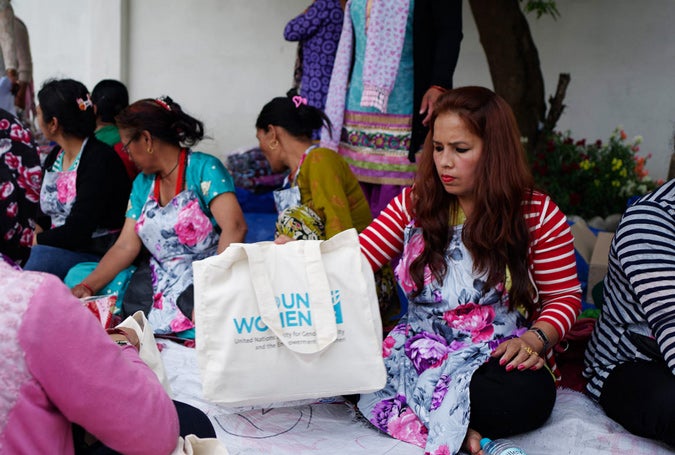To Rise Up and Rebuild
Date:
Author: Tsering Kongtsa
It has been over two weeks since two devastating earthquakes and countless aftershocks rocked Nepal. Like the rest of the world, I watched in horror as the nation’s capital Kathmandu, where I was born and raised, loomed in dust and debris. It is difficult to escape the images of destruction, pain, loss and grief that have been headlining the news and social media. However, it is equally hard to ignore the strength of the Nepalese people and their resilience and commitment to rise and rebuild their nation stronger than before.

‘A new generation will help Nepal rise up and rebuild’ is a statement echoed by many; and rise up and rebuild they will. Amidst the outpouring of support and aid from outside Nepal, immediately following the days after the earthquake, it was inspiring to see locals, women and men alike banding together in support of each other. Overnight numerous independent start-ups grew out from a need and desire to help. Local youths delivered aid supplies to remote villages, volunteers put up temporary shelters, children fundraised and rescuers worked tirelessly around the clock. The rebuilding process had indeed commenced.
Women are taking the lead amidst the disaster
What inspired me the most was to see Nepalese women taking the lead and working shoulder to shoulder with men following the disaster. My cousin, a stay-at-home mother of two, gathered food supplies and started volunteering at a local orphanage. My friends, a new mother and a recent university graduate collected relief supplies and travelled to villages along with other university students to help the earthquake victims. My aunt, a 65-year-old grandmother, collected water and delivered it to the rescue team. These exceptional women and countless others are an epitome of Nepalese women’s strength and dedication to help and lead the rebuilding process.
In times of natural disasters, women are always among the most vulnerable groups. In the days following the earthquake, due to limited or no access to hospitals, health care workers and medicines, pregnant women and new moms were particularly at high risk due to lack of essential safe delivery services and antenatal and postpartum care. They are still at risk. The disaster has left many women and girls homeless without any support and vulnerable to human traffickers. Younger girls face psychological trauma of having witnessed the disaster and loss of family and friends. Elderly women are also particularly at-risk of abandonment and health issues.
In the wake of this disaster, some of the issues specific to women are already being raised. Women have started to take the lead in addressing women-specific needs. Women-led local groups in various communities in Nepal have already started working with international organizations, such as the UN Women, the United Nations Population Fund, Global Fund for Women, United Nations Children's Fund and many others private organizations.
Needlessly to say, this will not be an easy task. However, no longer are Nepalese women willing to be mere by-standers. Whether she is an educated modern city girl, an illiterate farmer or a homemaker, she wants equal part in rebuilding her community and country. Women have the skills, the motivation, and the dedication to help their sisters and their nation. Never has there been such an urgent need for Nepalese women to get involved and take the lead. This is an opportunity they will gladly take.
Anecdote
I was talking to my cousin in Nepal over the telephone amidst the static noise of a bad connection. A mother of two, she had just told me that she was going to a remote village at the border of Nepal and Tibet where her grandmother used to be a nun. The nunnery had been badly damaged in the earthquake and many were without food and shelter. My cousin was gathering relief supplies, hiring five porters and with her brothers she was going to help. A full day of travel—by car to the border and two days trek through the mountains—is the regular route to reach the nunnery. Post earthquake, she was not sure the condition of the route. “Are you sure that you want to go? There are still aftershocks and who knows how long it will take for you to get there?” I asked. “It is still very dangerous to travel there. Maybe you should wait a bit?”.
Tsering ‘अहिले नगरे कहिले?’ –“If not now, when?” she replied in Nepalese. She proudly affirmed, “Now is the time for all Nepalese to rise up and rebuild.”
Final thoughts
Given the right motivation, confidence and support women can do anything. This statement stands true for 13 million strong Nepalese women. A new generation of strong Nepalese women will help Nepal rise up. Women will play an instrumental role in the rebuilding of a better- stronger Nepal. The process has already begun.